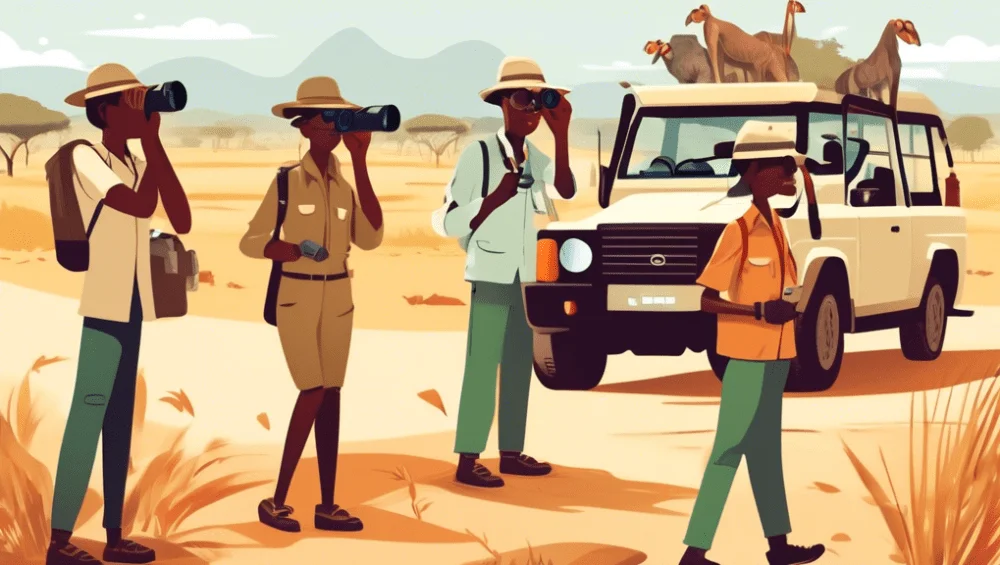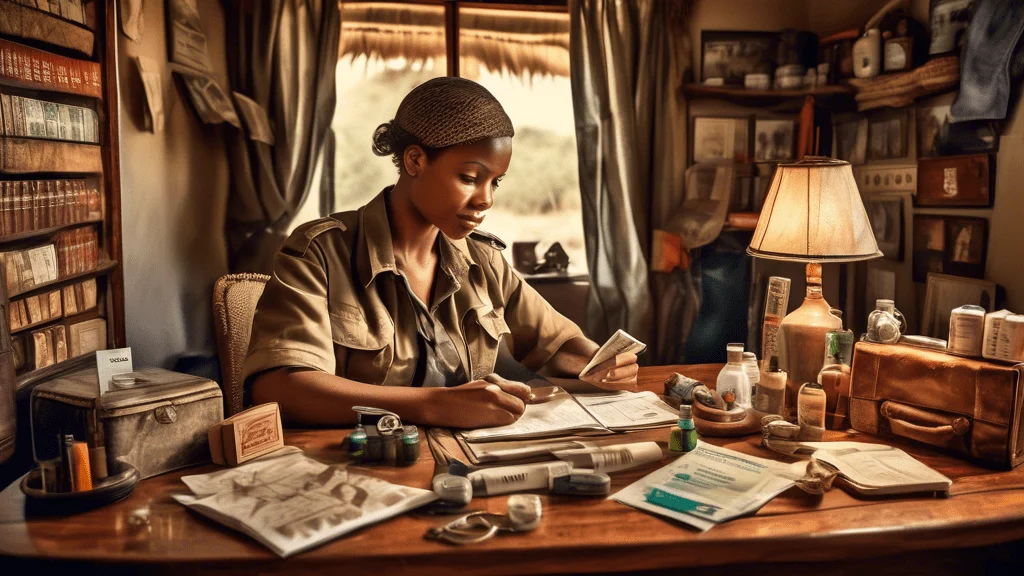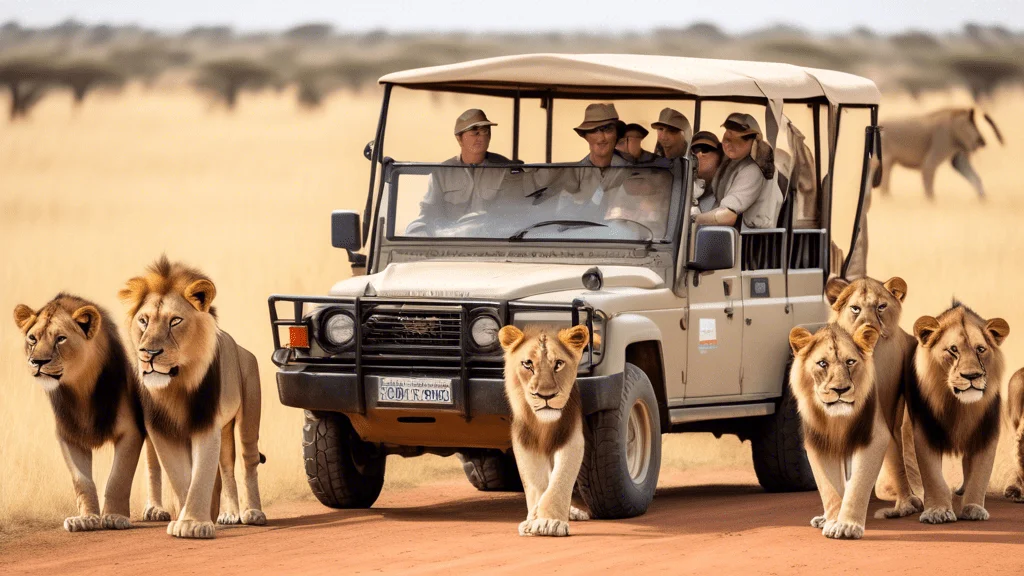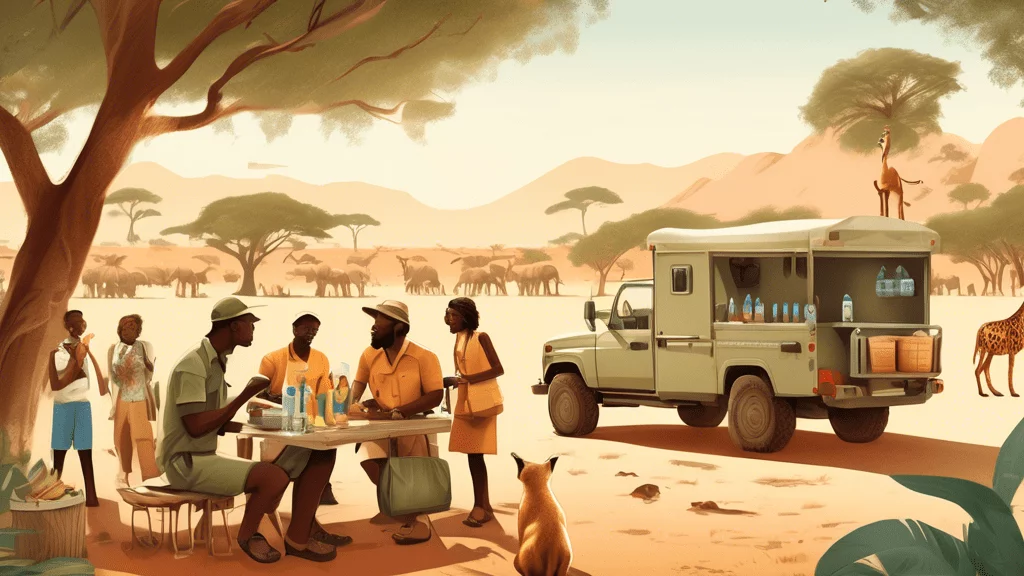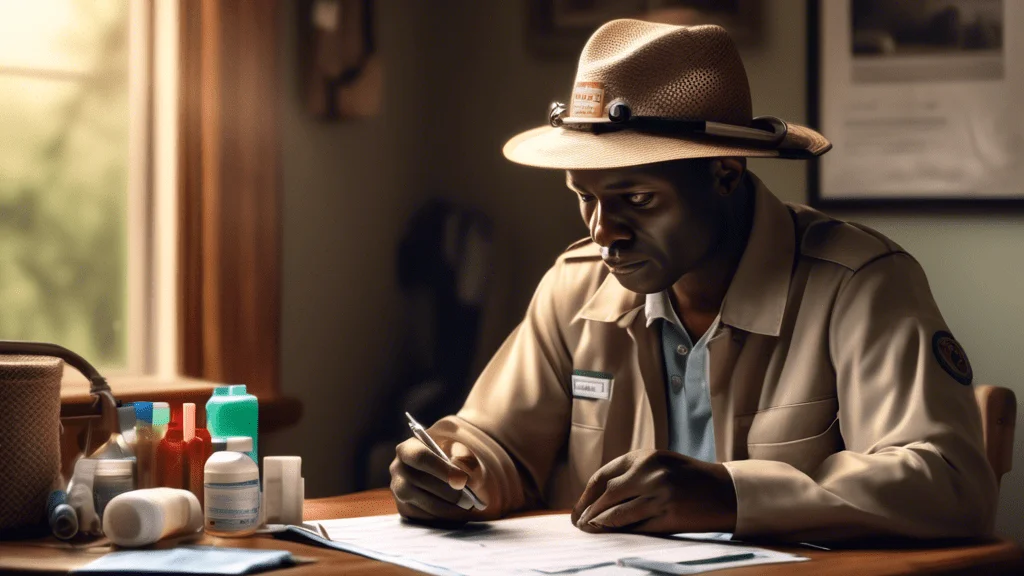Introduction to Health and Safety on a kenya Kenyan Safari
Hey there, adventurers! Planning a thrilling kenya Kenyan safari soon? That’s fantastic! kenya Kenya is renowned for its stunning landscapes and incredible wildlife, making it one of the most popular safari destinations around the globe. But, hold on a second! Amid all the excitement, have you thought about your health and safety? Trust me, these aren’t things you want to overlook when embarking on this adventure of a lifetime.
In this guide, I’ll walk you through everything you need to know to stay safe and healthy on your safari. From pre-safari health preparations to tips on avoiding common safari hazards, by the end of this article, you’ll be well-equipped with reliable kenya Kenyan safari health tips. Ready to dive in? Let’s make sure your journey is unforgettable for all the right reasons!
Pre-Safari Health Preparations
Before you jet off to kenya Kenya, there are a few key steps you need to take to ensure you’re safari-ready. First and foremost: vaccinations and medications. Think of them as your pre-safari armor! Chat with your healthcare provider about which vaccines are required for kenya Kenya to avoid any unpleasant surprises. Also, don’t forget to secure a solid travel insurance plan that offers health coverage—it’s your safety net in case things don’t go as planned.
And a little pro tip? Always pack a first aid kit and essential medications. You never know when a headache (or something more serious) might strike, and it’s best to be prepared. After all, who wants to be searching for a pharmacy in the middle of the wilderness?
Safety Measures During Your Safari Adventure
Okay, you’ve landed, bags unpacked, and the wild is calling your name. But wait! Safety first. Respecting wildlife is crucial. Keep a safe distance from animals; remember, this is their home, and you wouldn’t like anyone trespassing on your turf either. Hire reputable safari operators who prioritize safety. A good guide can be the difference between a heart-stopping moment and heart-breaking one.
On the ground, watch out for common hazards like insects and the powerful African sun. Packing insect repellent and sunscreen is just as vital as bringing your camera. Trust me, you don’t want your safari memories overshadowed by a nasty sunburn!
Health Tips for a Comfortable Safari
Let’s talk comfort. Safaris can be strenuous, and staying hydrated is key. Carry water with you at all times and beware of food risks. Stick to bottled water and well-cooked meals to avoid any stomach issues. It might also be smart to learn a bit about how to handle kenya Kenya’s extreme weather conditions, whether it’s blistering heat or unexpected rain. A little preparation goes a long way.
Speaking of preparation, maintaining good personal hygiene in the wild can be tricky but doable. Wet wipes and hand sanitizers are lightweight essentials that will keep you feeling fresh and clean throughout your journey.
Post-Safari Health Considerations
Once your safari adventure concludes and you’re back home or headed elsewhere, keeping an eye on your health is still important. If you feel a bit off, don’t shrug it off. Sometimes, safari-related illnesses like malaria can sneak up on you post-travel. Scheduling a post-travel checkup with your doctor can provide peace of mind. Better safe than sorry, right?
And there you have it! From pre-safari preparations to post-safari checkups, these kenya Kenyan safari safety precautions will ensure your adventure is as safe as it is thrilling. Ready to make some extraordinary memories? Now you are! Safe travels, explorer!
Introduction to Health and Safety on a kenya Kenyan Safari
Brief Overview of the Importance of Health and Safety for Safari-Goers
Let’s face it—going on a safari in kenya Kenya is an adventure of a lifetime. But with great adventure comes great responsibility! Your health and safety should be top priorities. Why? Because the wild can be, well, wild. And while we’re all for thrilling experiences, nobody wants their safari memories to include tales of avoidable mishaps. So, buckle up, as we delve into some handy health and safety tips that will make your safari both exhilarating and safe.
Introduction to What This Article Will Cover
Now, you might be wondering, what’s on the docket for this safari safety guide? We’re covering everything, starting with pre-safari health preparations—think vaccinations and medications. We’ll also dive into the nitty-gritty of staying safe during your adventure, dealing with wildlife, choosing the right transport, and avoiding common pitfalls like insect bites and sunburn. Plus, we’ve got your back with post-safari health considerations to ensure your trip concludes on a high note. Sounds like a plan, right?
Mention kenya Kenya’s Popularity as a Safari Destination
Here’s a fun fact: kenya Kenya isn’t just a great safari destination; it’s one of the best in the world! From the Masai Mara’s rolling savannahs teeming with wildebeest to the awe-inspiring views of Mount Kilimanjaro from Amboseli National Park, kenya Kenya holds a special place in the hearts of safari-goers. It’s got everything you could ever want—majestic landscapes, diverse wildlife, and an authentic touch of African culture. So, isn’t it worth ensuring you stay healthy and safe to fully enjoy all kenya Kenya has to offer?
Pre-Safari Health Preparations
Guide to Vaccinations and Medications Needed Before Traveling to kenya Kenya
Alright, let’s talk about the nitty-gritty: vaccinations and medications. You don’t want your dream safari turning into a nightmare, right? It’s crucial to arm yourself with up-to-date vaccinations before hopping on that flight to kenya Kenya. The usual suspects? Yellow fever, typhoid, hepatitis A and B, and tetanus. But don’t just take my word for it—consult with a travel health specialist who will provide a personalized list based on your medical history. Trust me, it’s a game-changer.
When I was planning my first safari, I nearly forgot about malaria prophylaxis. Imagine my surprise when my doctor reminded me! Malaria is no joke, especially in sub-Saharan Africa. Ensure you get a prescription for anti-malarial pills and follow the dosage instructions to the letter. A mosquito bite could turn into a major bummer otherwise.
Tips on Securing Travel Insurance with Health Coverage
Have you ever thought, What if something goes majorly wrong while I’m out in the wild? Travel insurance with health coverage might just be your best buddy on a kenya Kenyan safari. Look for a policy that covers things like medical evacuation (you never know where that off-the-beaten-path adventure might lead), hospital stays, and treatment costs for injuries. I once met a fellow traveler who broke his ankle while hiking in Maasai Mara. Luckily, his insurance covered everything, from the initial treatment to the helicopter ride to Nairobi! Moral of the story? Don’t skip this step.
Importance of Packing a First Aid Kit and Essential Medications
Ever hear that saying, Hope for the best, prepare for the worst? It applies big time here. A well-stocked first aid kit is your backup plan for minor mishaps. Pack band-aids, antiseptic wipes, pain relievers, antihistamines, and any prescription medications you might need. Trust me, you don’t want to depend on finding a pharmacy in the middle of the savannah.
On my last trip, I brought along some anti-diarrheal medication and an electrolyte solution. Fast-forward to day four—guess who ended up with traveler’s tummy? If you guessed me, ding, ding, ding! Those medications saved my trip and got me back out in the wild faster than you can say safari.
Whether you’re a safari newbie or a seasoned explorer, taking these pre-safari health preparations to heart can make all the difference. So, are you ready to pack your bags with confidence?
Safety Measures During Your Safari Adventure
Guidelines for Staying Safe Around Wild Animals
Let’s be real, one of the biggest draws of a kenya Kenyan safari is the incredible wildlife. But while it’s thrilling to see lions, elephants, and rhinoceroses up close, it’s crucial to remember these are wild animals. Keep your distance, no matter how Instagram-worthy the shot might be. A zoom lens can be your best friend here.
I remember my first safari in the Maasai Mara. Our guide emphasized that we should never leave the vehicle unless explicitly told it was safe. One traveler got a bit too excited when spotting a cheetah and almost stepped out for a closer look. Luckily, our guide was quick to intervene. Lesson learned? Follow your guide’s instructions religiously. They know what they’re doing; after all, it’s their backyard.
Recommendations for Safe Transportation and Reputable Safari Operators
Trusting a reputable safari operator can’t be overstated. Do your homework before booking. Look for operators with positive reviews and certifications from credible organizations. This isn’t like booking a one-night stay at a quirky bed-and-breakfast. Your safety hinges on their experience and professionalism.
When I was researching for my safari, I cross-referenced multiple sources and ended up with one of the most well-reviewed operators. From well-maintained vehicles to knowledgeable guides, every detail was top-notch. Not once did I feel unsafe, and I got to enjoy my trip without a hitch. A bit of research can go a long way in ensuring your safari adventure is both spectacular and safe.
Advice on Avoiding Common Safari Hazards
While wildlife encounters are the big-ticket items on any safari, you can’t forget about the smaller, but no less pesky, hazards. Take insects, for example. kenya Kenya is home to a variety of bugs that can turn your dream trip into a blood-sucking nightmare. Mosquitoes, which can carry malaria, are particularly notorious.
Seasoned safari-goers often swear by wearing long sleeves and pants, especially during the evenings. Applying insect repellent is another must. Additionally, sleeping under mosquito nets when camping or in less developed lodgings can keep those uninvited guests at bay.
And then there’s the sun. Trust me, the African sun is no joke. You might think you can handle it, but it has a way of catching you off guard. Bring a wide-brimmed hat, high-SPF sunscreen, and sunglasses. Dehydration can sneak up on you too, so drink water regularly, even if you don’t feel particularly thirsty.
Another common hazard is foodborne illness, which often stems from consuming contaminated food or water. Stick to bottled water and ensure the food you eat is thoroughly cooked. It’s better to be a bit cautious than to end up with an upset stomach in the middle of nowhere.
On one safari, we had a picnic stop, and I found myself eyeing a fresh fruit salad. As tempting as it looked, I remembered the cardinal rule: If you can’t peel it, don’t eat it. I stuck to the items I knew were safe and enjoyed my meal without any regrets.
So there you have it—simple but essential tips to ensure your kenya Kenyan safari is all about the awe and none of the ‘aww no.’ Your dream adventure awaits, as long as you keep safety at the forefront of your plans.
Health Tips for a Comfortable Safari
Strategies for Staying Hydrated and Managing Food Safety
Picture this: you’re in the sprawling savannah with the sun beating down. The last thing you want is to feel parched or—heaven forbid—have a bout of stomach troubles in the middle of nowhere. Staying hydrated is critical for both comfort and safety on your kenya Kenyan safari. Trust me, I’ve been there, and let’s just say a liter of water is your best buddy.
Carry a reusable water bottle and fill it up whenever you have the chance. It might seem like a no-brainer, but in the excitement of spotting lions and elephants, it’s easy to forget. Some safaris provide bottled water, but it’s always prudent to have your own stash. And what about food, you ask? Stick to thoroughly cooked meals and peeled fruits. Think yours truly, who ignored this advice once and paid for it dearly—let’s just say I got very familiar with the camp bathroom.
Recommendations for Dealing with Extreme Weather Conditions
kenya Kenyan weather can be extreme. One moment it’s scorching hot, and the next, a sudden downpour. Dressing in layers is your winning strategy. Mornings and evenings can be quite chilly, so pack a warm jacket or fleece. By midday, you might only need a light shirt. Remember, the key is to stay comfy no matter what mother nature throws at you. On one of my trips, I learned this first-hand when a sudden shift in weather turned a comfy afternoon into a freezing ordeal because I left my jacket back at the camp.
Don’t forget a wide-brimmed hat and sunglasses for sun protection. They’re not just for fashion; they’re your first line of defense against UV rays. Sunscreen with at least SPF 30 is non-negotiable. Put it on religiously, even if the sky is overcast. I once skipped it on a cloudy day and ended up with a sunburn that made me look like a boiled lobster. Not fun.
Practical Tips for Maintaining Personal Hygiene in the Wilderness
Personal hygiene is crucial when you’re exploring the wilderness. It’s not just about feeling fresh; it’s about preventing illness. Hand sanitizer is as essential as your binoculars. Use it before eating and after touching anything that might harbor germs. Think of it as your portable cleanliness shield.
When it comes to bathroom matters, nature calls even in the wild. Depending on your safari setup, you might have proper facilities, or you might be going au naturel. Either way, pack some eco-friendly wipes and biodegradable bags to manage waste responsibly. I learned the importance of this the hard way during a bush walk when nature’s call was met with, well, a lack of proper preparation.
On longer trips, especially those lasting several days, ensuring a decent shower can be challenging. A good tip is to have a pack of no-rinse body wipes. They’re lifesavers for freshening up when a full shower isn’t available. And remember, wearing quick-dry and moisture-wicking clothing helps keep you comfortable, reducing that icky feeling of mingling heat and sweat.
By following these practical kenya Kenyan safari health tips, you can focus on what really matters—soaking in the majestic beauty of kenya Kenya’s wildlife and landscapes without health worries bogging you down. Keep these tips in mind and let your adventure be one for the memories and not for the wrong reasons. So, are you ready to pack your bags and discover the wild wonders comfortably and safely?
Post-Safari Health Considerations
Steps to Take if You Feel Unwell After Your Safari
So, you just returned from your amazing kenya Kenyan safari. You’ve got memories (and photos!) that will last a lifetime. But what if you start feeling a bit off? It’s crucial to pay attention to your body. Feeling a little tired after all that excitement is normal, but persistent symptoms like fever, unusual fatigue, or stomach issues shouldn’t be ignored.
Remember that time I got back from a trip and felt feverish for days? I brushed it off as jet lag, only to find out later it was something more. I should’ve seen a doctor right away. The moral of the story? If something feels wrong, head to your healthcare provider immediately. Early detection can be a lifesaver.
The Importance of Post-Travel Medical Checkups
You know that saying, Better safe than sorry? It applies perfectly here. Even if you feel great after your safari, a post-travel medical checkup is a smart move. Trust me, you’d rather spend an hour at the doctor’s office than deal with complications later.
When you visit your doctor, let them know where you’ve been. Mention that you were in kenya Kenya and potentially exposed to certain health risks. A good medical checkup can detect issues before they become serious problems. Plus, it gives you peace of mind. Who doesn’t want that?
Advice on Recognizing and Addressing Potential Safari-Related Illnesses
kenya Kenyan safaris are thrilling, but they also come with their share of health risks. From malaria to traveler’s diarrhea, it’s important to be aware of what could go wrong. Malaria, for example, can be a big concern. If you experience high fever, chills, or muscle pain after your trip, it’s wise to get tested for malaria immediately. You probably took antimalarial medication before and during your safari, but no prevention method is foolproof.
Let’s not forget other illnesses. Remember the food adventure you had? Sometimes that local delicacy might not sit well with your stomach. If you end up with digestive issues, keep yourself hydrated and consider consulting a doctor if symptoms persist.
Oh, and one more thing—be aware of any unusual bites or rashes. Africa’s wildlife is amazing but can include insects that leave you with nasty surprises. Tick bites, for example, can lead to infections if not treated promptly.
In short, keep an eye on your health and don’t hesitate to seek medical advice if anything feels off. It’s always better to be cautious, especially after a trip that took you deep into the wilderness.
Your kenya Kenyan safari was an adventure of a lifetime. With a little attention to your health after you return, you can make sure the memories stay good and your body stays healthy. Here’s to many more travels, right?
Conclusion
So, there you have it – a comprehensive guide to staying healthy and safe on your kenya Kenyan safari. From the moment you start planning your trip, keeping health and safety at the forefront ensures you’ll have an adventure to remember for all the right reasons. From getting the necessary vaccinations and packing a robust first aid kit to understanding how to interact safely with wildlife, these kenya Kenyan safari health tips can make your experience both thrilling and secure.
When you’re on the plains, with the sun setting over the savanna and the thrill of spotting a lion in the wild filling your heart, the last thing you want to worry about is a health mishap or safety issue. Trust me, a little preparation goes a long way. I remember my first safari—my excitement was through the roof, but having those precautionary measures in place let me enjoy every moment without a hitch.
Following these safari safety precautions, such as choosing a reputable operator and being cautious about food and water, also ensures that you’ll make the most out of your time in kenya Kenya. The beauty of a safari is in the details—the rustle of the grass as an elephant walks by, the distant roar of a lion. Don’t let something like dehydration or an easily avoidable incident spoil these moments.
And finally, after you return home, pay attention to your body. Post-safari health considerations are crucial. I had a friend who ignored minor symptoms after returning, only to face malaria a week later. A quick visit to the doctor after your journey can be a lifesaver—literally.
Remember, a kenya Kenyan safari is an unforgettable experience with the right preparation. By keeping these health and safety tips in mind, you can focus on the wonders of the kenya Kenyan wilderness, leaving your worries behind. Adventure awaits, and with these pointers, you’re all set to embrace it fully and safely. Happy safari-ing!

